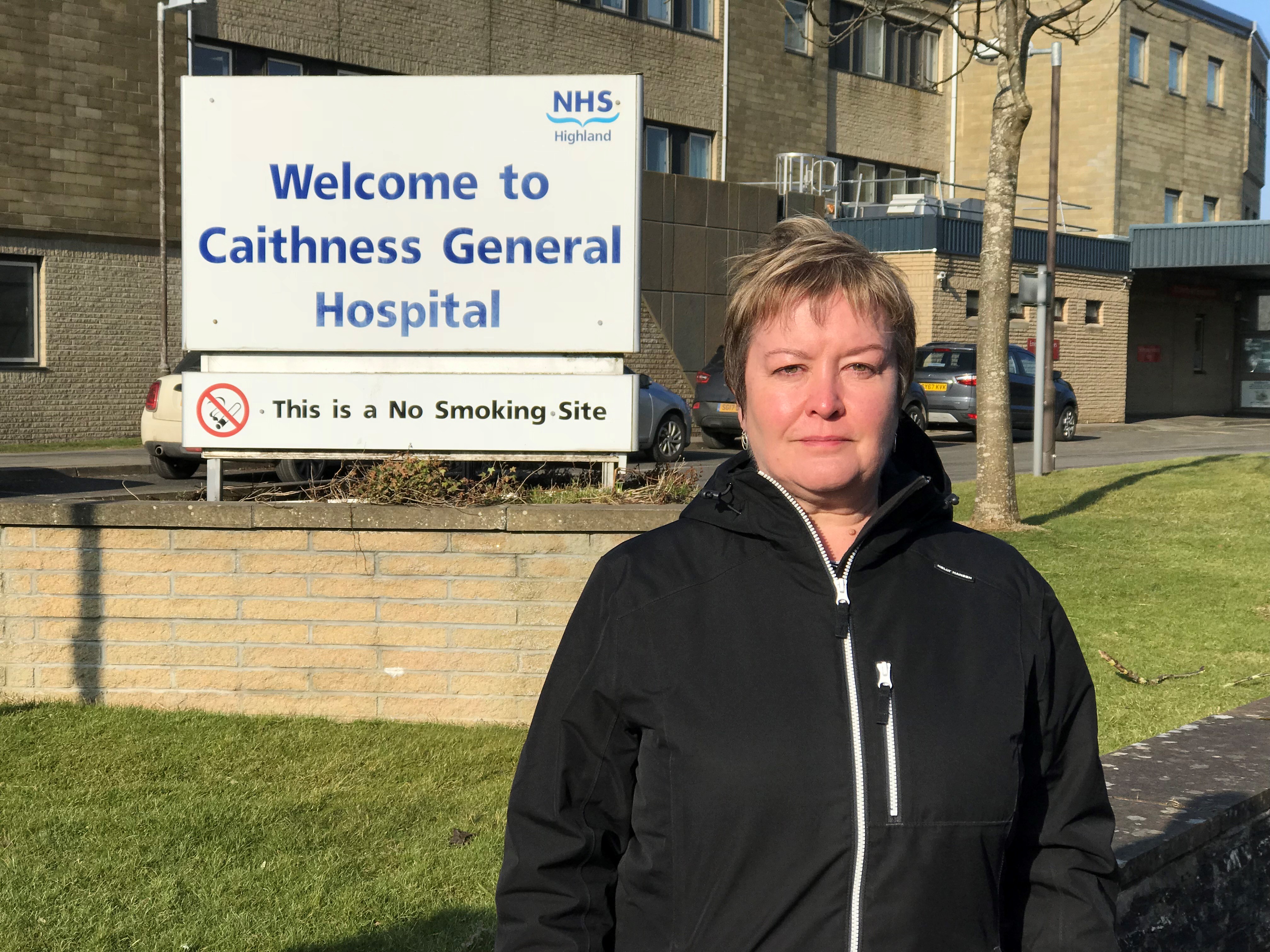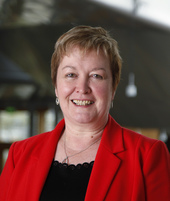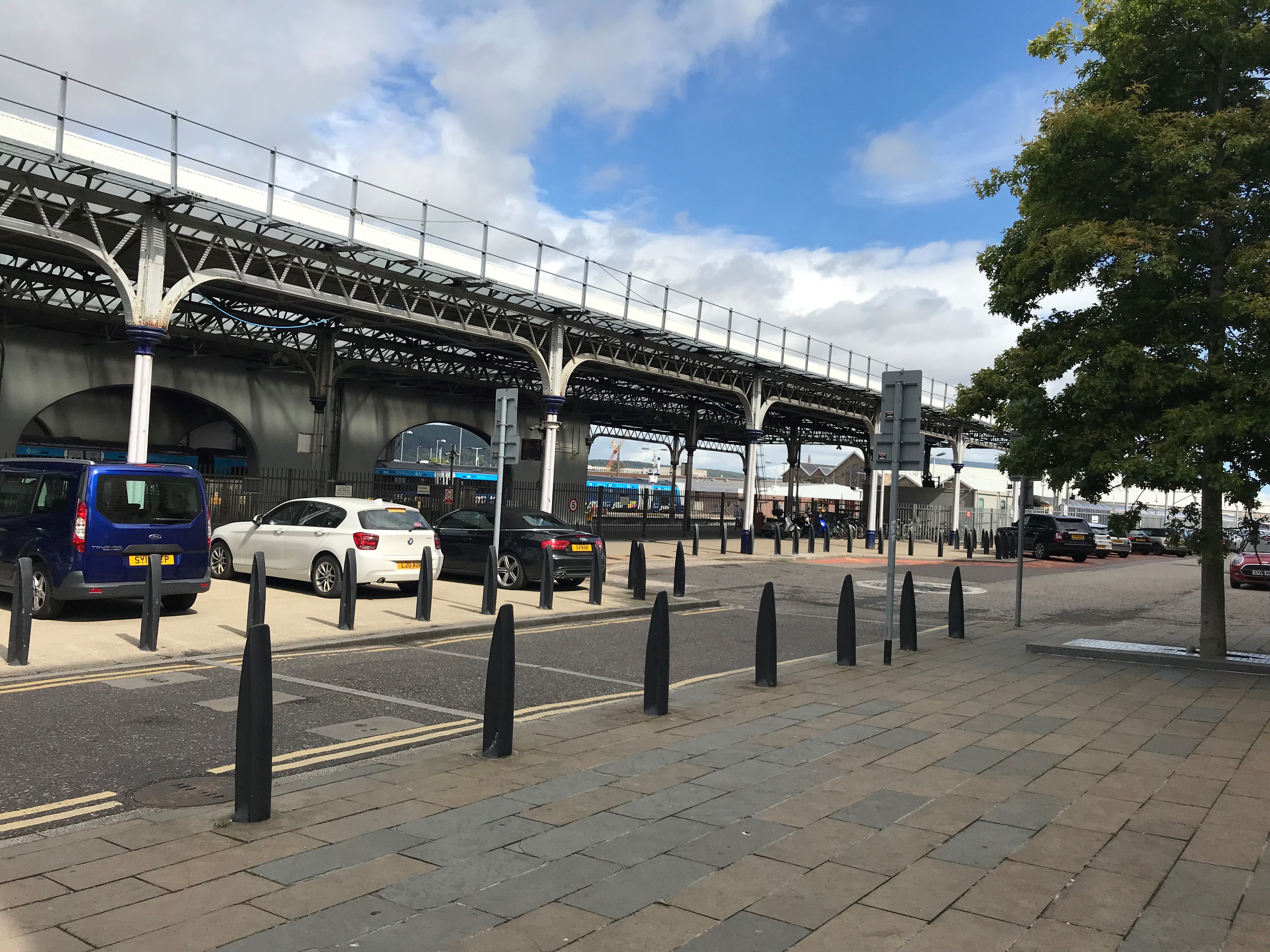 An MSP is renewing her call for a full risk assessment to be carried out on the methods of transporting pregnant women to hospital from Caithness to Inverness after receiving an edited version of an investigation into the birth of twin babies, born 50 miles apart.
An MSP is renewing her call for a full risk assessment to be carried out on the methods of transporting pregnant women to hospital from Caithness to Inverness after receiving an edited version of an investigation into the birth of twin babies, born 50 miles apart.
In February, Rhoda Grant, who represents the Highlands and Islands, asked the First Minister why the air ambulance was not initially called when a Caithness mother went into labour at 30 weeks with twins.
Mrs Grant has now received of ‘precis’ of a report into a Significant Adverse Event Review of the case from the new NHS Highland Chief Executive, Iain Stewart.
In his letter, Mr Stewart says: “It is important to point out that the air ambulance helicopter is a highly unsuitable environment for the delivery of a baby.”
Mrs Grant says: “His answer begs the question – what is a suitable environment for pregnant women to be airlifted to hospital in an emergency and why was the helicopter called twice in this case if it was so unsuitable?
“Also, Mr Stewart’s letter only has a passing reference to Specialist Transport and Retrieval (SCOTSTAR), a national service that provides safe transfer for some of the sickest patients within NHS Scotland. The clinical teams are called in to transport patients, from babies through to children and adults by road and air. The expert teams include doctors, nurses and paramedics.
“Why was SCOTSTAR not called in? There are many questions unanswered in this edited version of the review and, while I see the need for patient confidentiality, it does not give me confidence that a similar incident will not happen again. There must be a full risk assessment carried out on what transport can be used and when and what craft is suitable for airlift in emergencies with pregnant women.”
Mr Stewart stresses that the care teams involved in the birth “behaved appropriately and professionally and that the proper procedures were followed in the best interests of the mother and her babies”.
Mrs Grant said: “I must congratulate all the staff working on the front-line in this case. They had a difficult job and did their very best for the mother and her babies.”
Previously, at First Minister’s Questions, Mrs Grant told Nicola Sturgeon the woman had bravely shared her experience of giving birth under the current maternity provisions in Caithness.
After going to Caithness General Hospital, the mother was informed that she would have to go to Inverness by road ambulance, over a 100 miles away and two and half hour drive
Mrs Grant told the First Minister: “Half way into that journey they had to stop at a community hospital at Golspie when the first twin was born breech.
“The air ambulance was then tasked but because it would take two hours to arrive the first twin would be sent by road to Inverness.
“The helicopter could not land, another air ambulance was tasked but this would take too long therefore a second ambulance resumed the journey to Inverness where the second twin was born.
“Thankfully after prolonged stay in hospital all are now doing well.
“However, it begs the question why was the air ambulance or emergency retrieval team not tasked initially airlifting the mum from Caithness.
“Will the First Minister investigate this and will she make sure that the air ambulance treats situations like this as a priority?”
Nicola Sturgeon promised to investigate and conveyed her good wishes to the family. She said she could not answer immediately as to why the air ambulance was not initially tasked, and did not have information in the chamber, and but she asked the Health Secretary, Jeane Freeman, to look into this.
Ends
Note for editors: Posting on Caithness Health Action Team’s Facebook site:
Caithness Health Action Team – CHAT
14 February at 21:30 ·
What’s it going to take for NHS Highland to change things? Where is this going to end?
While at my work in November 2018 my waters broke and I started labour. I never expected labour as I was only 30 weeks pregnant with my twins. A few hours later we made our way through to Caithness General Hospital. I was taken good care of by the midwives in Wick while they decided on what to do next.
I was in Wick for a couple of hours and was informed I would have to go to Inverness by ambulance. I was put in the ambulance with two midwives. The ambulance crew took an incubator as well. There was no panic and everyone seemed very calm. My partner followed in the car.
We made our way to Inverness. Contractions came stronger and closer so the midwife checked me to which they weren’t concerned. About 10/15mins later I had an urge to push. We stopped outside Golspie for the midwives to do a second check. It was decided we must stop at Golspie hospital. The midwives informed my partner and we made our way into Golspie.
Minutes later we arrived and I was wheeled into a very small room with a number of staff inside. Shortly after arrival about 10.30pm twin 1 was born breech. He was being looked after by doctors and nurses very soon after birth.
Thankfully twin 2 was in no rush to appear.
A TV with a video link to Inverness was wheeled into the room with a number of staff on the screen. They used this link to consult with Inverness to decide on what to do next.
I was informed a helicopter was being sent out but wouldn’t be arriving till sometime later. So they sent up two nurses and a doctor by police car from Inverness to look after twin one.
We were told that a helicopter was coming but then it couldn’t land due to frost on the propellers so it had to go back down the line. They would have been able to send another helicopter but this would have been many hours later.
There was a lot of confusion, questions and lack of decisions being made on what was the best option going forward. It was eventually decided we should make our way to Inverness by ambulance.
About 2am we left for Inverness by convoy, 2 ambulances, one with me and two midwives and other with twin one and two nurses, a police car and two other cars with Drs and my partner.
When we arrived in Inverness to our surprise the Inverness midwives took over and the Wick midwives involvement was finished.
I was induced and twin 2 was born head down. He was taken to SCBU along with his brother.
We spent 6 weeks in Inverness until the twins grew strong enough. I was provided with accommodation for the full 6 weeks.
We now have many appointments in Raigmore due to no-one being able to do checks up here. Why is this?
I am expected to drive two newborns to Inverness for an appointment lasting a couple of minutes.
We all have nothing but the greatest of praise for all staff involved but often think what if something went wrong while on the A9 or even in Golspie hospital.
All parties involved did the best they could with the situation. They made us feel very comfortable and safe in their hands.
My delivery should never have happened the way it did. It could had gone so wrong.
We would like to know,
Why weren’t we flown to Inverness?
Why could specialists not come up to Wick?
Why are Wick and Golspie staff expected to work like that?
Golspie wasn’t prepared for such an emergency but they did what they could and they did amazing. This shouldn’t be the case.
We know of another birth which took place in Golspie in 2017 and wonder if anything has been learned or changed from that.
We dread to think what could have happened if the road was closed by an accident or bad weather.
There is an investigation into our incident but we are unsure if the results will be made public.








